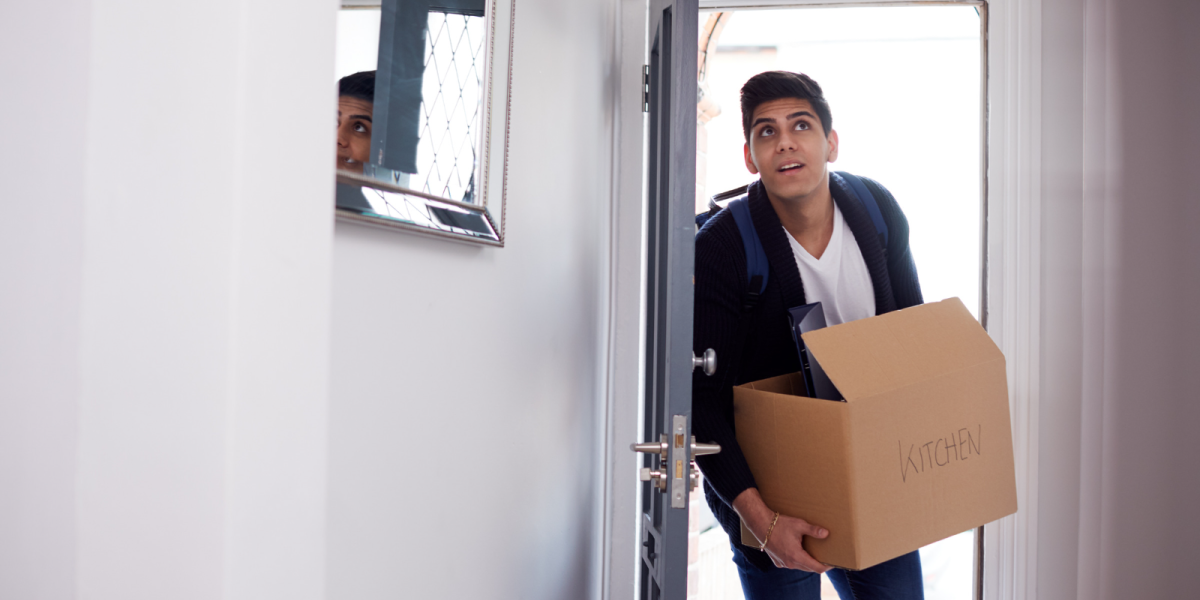 © Pixabay, Abandoned House
© Pixabay, Abandoned House
This Youth is in the middle of a Housing Crisis
Last updated on Thursday, 25/01/2024
From Ireland to Cyprus, the housing crisis is unfortunately here to stay. Adequate and decent housing is a basic need and a human right rather than a commodity. Young people are among the population ranges the housing crisis impacts the most.
Everything started back in 2008 when the financial crisis occurred. The shortage of land and materials led to a decline in various aspects. Adding COVID-19 to the equation has underlined significantly the housing conditions of people until now (Acta Biomedica). The housing crisis has many faces. It is not only about finding a house. It is about finding affordable and decent housing in both rural and urban areas and maintaining it.
According to the International Monetary Fund (lMF), currently in most countries, the cost of housing has grown faster than the income. This, along with the energy crisis and the rise of Airbnbs has created a hostile situation that impacts everyone. When focusing on young people, the housing crisis impacts can range from difficulties in leaving their parental house to homelessness.
Leaving the nest

© Pexels, lil artsy. Leaving the Nest
Young adults entering university, the job market, finding their way in adult life, or just trying new beginnings were always more vulnerable when it comes to gaining their independence, mainly for economic reasons. Considering the additional challenges of the housing crisis, leaving the parental nest is even more difficult now. The option of living with a parent is sometimes the only choice or the safest one as general financial risk coverage for now and the future.
Young adults living with their parents are people with different employment situations and professional activities. Maira from Portugal is 26 years old. She shares: I am currently working and about to start my master's degree. I was considering living on my own because I want to be independent and have my own space for multiple reasons, but the situation in Lisbon does not permit me to do so. I would work only to pay for the basics without being able to make ends meet. So it would either be living alone or with a roommate or sacrificing my master's to get another job or a full-time one. So I still stay with my parents.
The situation differs from country to country. Lately, however, even in countries where usually youngsters were able to leave the nest in their early 20s, the situation has become challenging as well. The age when at least 50% of people in the EU are living outside their parental home increased from 26 to 28 years old between 2007 and 2019 with Spain, Croatia, Italy, Cyprus, Belgium, Greece, and Ireland facing the largest increases (from 25 to 34), as reported by Eurofound.
Studies, mobilities, accommodation

© MonkeyBusiness. Moving In
When it comes to studies, mobilities, and internships the situation is slightly different. Higher Education Institutions (HEIs), host organisations, and employers most of the time offer support to the students/ trainees. However, even there the imbalance between the costs of living and the housing conditions can be challenging. Of course, each case depends on the hosting country and the university according to the 2023 report International student housing by the Erasmus Student Network. “With the average Erasmus+ grant being lower than 400 euros, almost half of the participants spend more than that in their monthly accommodation expenses.”
Accommodation choices and good housing conditions are crucial for the overall participation and performance of the trainees and students. If the living and renting costs are not covered in a adequate level that increases inequality among youngsters , especially for those in rural areas. Considering that most jobs, studying, and opportunities can be found in urban nets, young people from rural areas are even more excluded.
No place to call home

© Unsplash/ Nathan Dumlao. Tents
From having or not having the choice to rent or buy a house, unfortunately, there are more extreme situations intensifying as well. The housing crisis - or better say global affordability crisis and lack of place - is more intense for youths that belong to vulnerable groups. Although social housing and aid are offered to young people with disadvantaged socioeconomic, refugee, migrant backgrounds, domestic violence victims, youths of the LGBTQ+ community because of relationship breakdowns with family, etc., such solutions are temporary (whereas the housing crisis seems to last for long). These people are more likely to become homeless at some point in their lives. In fact, the percentage of homeless youth has also increased in the EU and experiencing homelessness can have long-term consequences for these young individuals.
Mental Health

© Pixabay/ Emily_WillsPhotography. A woman lying on the floor
Having a place to call home, feeling safe, and being able to rest are crucial factors for the overall health of an individual. According to the United Nations Universal Declaration of Human Rights, everyone has the right to a standard of living adequate for health and well-being, including housing. Plus, the European Pillar of Social Rights includes several housing-related rights. The importance of good housing conditions and mental health became apparent nationwide during the lockdowns. Poor housing conditions or the sense of limitations through walls or choices of houses impact the mental health, performance, and futures of youths.
Even youngsters who managed to take the next step and live on their own feel burdened struggling to keep their “independence” and house by the end of each month. Danai is 28 years old and lives in Athens. Recently she moved, after years trying to move out of her native house. She now lives with a roommate. She shared with us: I am really happy I made it but still the stress is high on how to make ends meet by the end of each month and this limits my overall choices and well-being.
What can be done?

© Pixabay/ Anemone13. Question
Immediate action should be taken collectively by the EU. Social housing, housing assistance, expanding the supply of quality housing, applying a maximum price per m² per country, so that rents and even prices for buying are affordable, not excluding the need to improve regulation of Airbnb. Peer solutions are already activated especially among young people. In the case of mobilities and studies, many youths through digital communities offer information and support to search and find safe and decent housing in different countries, proving one more time that solidarity is key to going through any crisis. But policy and decision makers should become part of this solidarity as well because proper housing conditions and choices give the freedom to youngsters to build further the life they want and be healthier on many levels.
_______________
Meet the authors
Maro Samara
I am Maro from Greece. I am an incubating physicist and parallelly work in the digital education domain for vulnerable groups and migration. I gained journalistic experience from writing in online student newspapers and pop-culture magazines. I love channelling ideas in several ways and cooperating in multicultural environments to make a sustainable global impact. Reading, debating, arts, languages, volunteering, and sports are places I find comfort and growth at the same time.
This article reflects the views of the authors only. The European Commission cannot be held responsible for it.